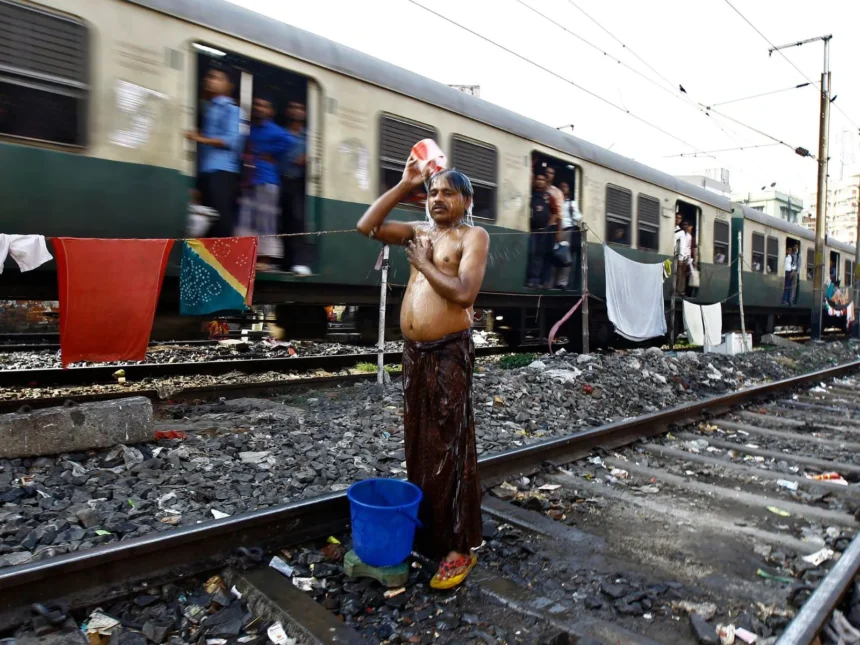In a recent development, the Indian Railways has defended its decision to issue demolition notices to two mosques located on encroached railway land in the national capital. The Railways asserted that the removal of structures built on such land is a routine procedure to mitigate potential safety hazards along the main route between New Delhi and Ghaziabad.
The notices were sent to the Taqia Babar Shah mosque near Tilak Bridge and another mosque in the Bengali Market area, along with a warning to remove the encroachments within 15 days. The move has stirred controversy, with the Delhi Waqf Board claiming ownership of both properties and expressing surprise at the demolition notices.
A spokesperson from the Northern Railways (NR) addressed the issue, explaining that the structures in question were indeed located on railway land, which is considered part of the critical infrastructure for safe and efficient railway operations. Encroachments on railway land pose significant safety risks to both passengers and railway personnel, warranting immediate action to prevent any potential mishaps.
The Railways’ decision to issue the demolition notices came as part of their ongoing efforts to reclaim encroached land and maintain the integrity of the railway network. Such encroachments have been a longstanding problem, hindering the smooth functioning of train operations and compromising passenger safety.
The issue has, however, become a point of contention due to the conflicting claims of ownership. The Delhi Waqf Board, which manages and safeguards waqf properties, asserts that both mosques are under its ownership and supervision. This claim has led to confusion and demands for a thorough investigation to determine the rightful ownership of the disputed properties.
Amidst the controversy, authorities are being urged to conduct a transparent and impartial inquiry to ascertain the actual ownership status of the mosques. A fair resolution is necessary to address the concerns raised by the Delhi Waqf Board and to uphold the principles of justice and property rights.
It is important to note that the Railways’ intention is not to target any religious or cultural institution but rather to protect the interests of the national transporter and ensure the safety and efficiency of railway operations. The encroachment removal process is a routine measure to clear the railway land from unauthorized structures that have been built without adherence to legal guidelines.
While safety remains the primary concern, there is a need for open communication and dialogue between the concerned parties to find an amicable solution. Collaborative efforts between the Indian Railways and the Delhi Waqf Board could help resolve the dispute, allowing for a better understanding of the ownership status of the mosques and the railway land.
Moreover, it is essential for the concerned authorities to keep the public informed about such actions and the reasons behind them. Transparent communication can help dispel any misconceptions and foster trust between the stakeholders involved.
As the controversy unfolds, it is hoped that all parties involved will approach the matter with a spirit of cooperation and a commitment to finding a fair resolution. Balancing the interests of public safety, property rights, and cultural heritage is crucial, and a well-informed decision will be instrumental in achieving this delicate balance.




